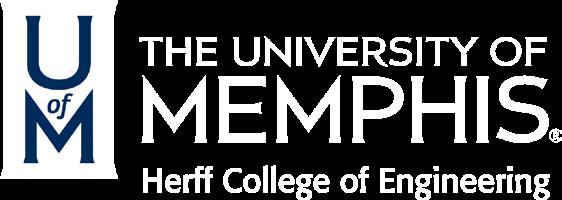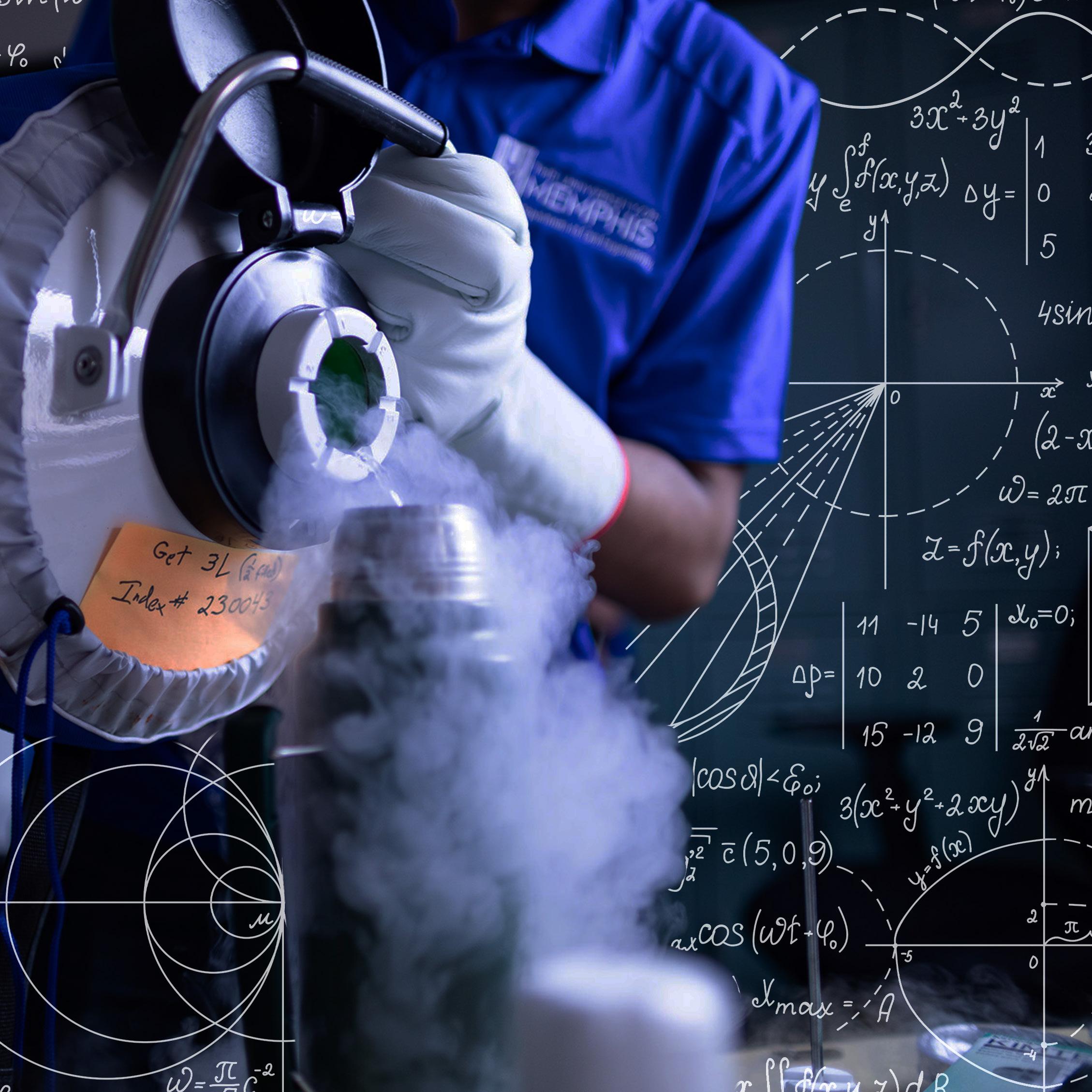




Since its first classes in 1964, Herff College has built a reputation for excellent instruction. More than 50 dedicated faculty members with outstanding academic and professional credentials comprise the College enabling us to offer a variety of undergraduate and graduate degree programs.
Within our five academic departments we offer 20 degree programs and many exciting activities and services that enrich or smooth the path to an engineering degree.

Biomedical Engineering1
Civil Engineering
Computer Engineering
Biomedical Engineering1
Agricultural Engineering
Engineering Seismology
Environmental Engineering
Geotechnical Engineering
Civil Engineering
Structural Engineering
Transportation Engineering
Water Resources Engineering
Applied Lean Leadership
Freight Transportation
Imaging and Signal Processing
Electrical Engineering
Mechanical Engineering
Computer Engineering
Electrical Engineering
Electrical and Computer Engineering
Manufacturing
Engineering Management
Transportation Management
Engineering Technology
Mechanical Engineering
Intelligence Engineering and Applications
Modern Energy and Power Systems
1 The Master of Science and Doctor of Philosophy degrees in Biomedical Engineering are offered through a joint academic program with The University of Tennessee, Health Science Center.
TOP 10 IN INTERNSHIPS
U.S. News & World Report
National Ranking
#98 IN BIOMED GRAD PROGRAMS
U.S. News & World Report
National Ranking

#149 BEST ENGINEERING SCHOOLS
U.S. News & World Report
$28.20M IN ANNUAL RESEARCH FUNDING
National Ranking backed by federal, state, and private sponsors.
Our mission says it all! Providing quality, world-class research that responds to the needs of the Mid-South and the nation is important to us. Faculty and staff in the college are affiliated with a number of research centers and institutes, many of which represent interdisciplinary research efforts. A truly hands-on environment, Herff College of Engineering is located in a great public research University. Our undergraduates get unprecedented research opportunities in graduate-level labs. Students participate in incredible research and design projects with engineers, professors, mentors and other students. We take a firsthand approach to changing the world, which is why our students do more. They have more lab access and more projects, allowing more opportunities to learn and grow.
With the addition of the new Edwards Research and Innovation Center, we plan to grow and expand our research to new heights.


• Master of Science in Electrical & Computer Engineering (with concentrations in Computer Engineering, Electrical Engineering, or No Concentration)
• PhD with a concentration in Electrical Engineering or Computer Engineering
• Graduate Certificates in Imaging and Signal Processing, Intelligence Engineering and Applications, and Modern Energy and Power Systems
• Intelligent Systems: Machine learning, cognitive engineering, big data analytics, deep learning-enabled applications, AI in healthcare and neural engineering
• Power Systems: Smart grids, advanced electronics, sensor networks, cybersecurity in modern grids and electric vehicle charging infrastructure.
• Sensor and Drones Networks: Remote sensing for agriculture and environmental applications
• Autonomous & Control Systems: Robotics, autonomous vehicles, safety-critical systems
• Embedded Systems: Biomedical Sensors, wearable bio-electronics, bio-instrumentation
• Computational Imaging Systems: Biomedical imaging applications, computer vision, image analysis, system development


Herff’s Electrical & Computer Engineering program combines hands-on experience with cutting-edge research funded by agencies like the Department of Defense, National Science Foundation, and the National Institutes of Health. With small class sizes and faculty working on the latest technological advancements, students receive individualized attention and access to state-of-the-art labs.






“Herff College provides exceptional opportunities for academic growth and professional development. With its state-of-the-art research facilities and timely resources, Herff equipped me with the skills and knowledge needed to excel as a researcher and enhance my professional expertise.“
Jabia Mostofa Chowdhury, Electrical and Computer Engineering (2022)

• Master of Science in Mechanical Engineering (Design & Mechanical Systems, Energy Systems, Mechanical Systems, and Power Systems)
• PhD with a concentration in Mechanical Engineering
• Advanced Materials & Manufacturing: 3D printing, biomaterials, material failure prediction
• Aerospace & Energy Systems: Cryogenic propellant management, wind energy, gas turbines
• Computational & Thermal Sciences: Computational fluid dynamics, heat transfer, aerosol science
• Biomechanics & Bioengineering: Medical device development, tissue engineering, biomechanics modeling
• Robotics & Automation: Autonomous systems, machine learning, robotics design
• Sustainable Systems & Environment: Green manufacturing, renewable energy, environmental impact analysis


Mechanical Engineering is the largest department in Herff College, offering diverse research opportunities and hands-on experience in high-demand fields. The program provides students with expertise in materials, energy, and aerospace technology, preparing them for careers in research, industry, and academia.






“The Herff College of Engineering does an excellent job developing engineers, preparing them for their career in engineering. I was given a great foundation that has allowed me to conduct over $50,000,000 in research, guiding 25 PhD students, 8 Masters level students and numerous undergraduate students.“
Richard D. Komistek, Mechanical Engineering (1992)

• Master of Science in Biomedical Engineering (Thesis & Non-Thesis)
• PhD in Biomedical Engineering
• Biomaterials & Tissue Engineering: Implants, regenerative medicine, bioactive materials
• Biomechanics & Medical Devices: Prosthetics, orthopedic research, surgical technology
• Bioelectrical & Imaging Systems: Neural engineering, biosensors, AI-driven diagnostics
The Joint Biomedical Engineering Program with UTHSC merges engineering and medical research, giving students access to top-tier labs and collaborations with hospitals and industry leaders. Graduates gain hands-on experience in biomedical innovation, preparing them for careers in healthcare technology.


• Bachelor’s degree in Biomedical, Chemical, Electrical, or Mechanical Engineering (or closely related field)
• GPA: At least 3.00 from an accredited college or university
• Letters of Recommendation: Three (3) letters from persons capable of assessing the applicant’s suitability for graduate study
• English Proficiency (International Applicants):
• TOEFL: 80 (no subscore below 20)
• IELTS: 6.5 (no subscore below 6.0)



ddiangelo@uthsc.edu


“My education and experience at Herff College of Engineering served as the foundation of my adulthood. I learned many valuable lessons and met long lasting friends. My engineering courses challenged my learning capacity by improving my problem solving skills. The diversity of topics from mechanical to electrical and biomedical engineering gave me a great introduction to all the possibilities of a career.“
Duong Thuy Nguyen, Biomedical Engineering (2013)

• Master of Science in Civil Engineering
• PhD with a concentration in Civil Engineering
• Infrastructure & Transportation: Bridge engineering, traffic systems, freight transportation
• Environmental & Water Resources: Groundwater research, sustainability, urban drainage
• Structural & Geotechnical Engineering: Earthquake-resistant structures, soil mechanics, foundation engineering
Civil Engineering at Herff College is the largest research program, with faculty internationally recognized for contributions to infrastructure, environmental sustainability, and earthquake engineering. Strong industry and government collaborations provide students with hands-on research and career-building opportunities.


• Bachelor’s degree in Civil Engineering (or closely related field)
• GPA: At least 3.00 from an accredited college or university
• Letters of Recommendation: One (1) letter from a person capable of assessing the applicant’s suitability for graduate study
• English Proficiency (International Applicants):
• TOEFL: 85 | IELTS: 6.5 | Duolingo: 110 | PTE: 57




“Beside the technical skills gained in structural/ earthquake engineering and engineering sesimology areas, Herff helped me to expand the soft skills such as critical thinking, problem solving, project and time management, as well as thought leadership.“
Alireza Shahjoue, Civil Engineering (2015)

• Master of Science in Engineering Technology
• Graduate Certificate in Applied Lean Leadership
• Automation & Robotics: Industrial robotics, mechatronics, control systems
• Manufacturing & Digital Systems: 3D modeling, CAD/CAM, industrial sensors
• Applied Computing: Microcontrollers, software development, cybersecurity applications
Designed for flexibility, the Engineering Technology program is fully online, making it ideal for working professionals. Students gain real-world expertise in automation, manufacturing, and computing, with handson labs and industry-aligned coursework that prepare them for high-tech careers in engineering innovation.


• Bachelor’s degree in Engineering, Engineering Technology, or a related analytical field
• GPA: Must be competitive for the applicant’s undergraduate program
• Letters of Recommendation: Three (3) letters from persons capable of assessing the applicant’s suitability for graduate study
• GRE Requirement: Required unless waived by the department
• English Proficiency (International Applicants): Required if applicable




“My cousin inspired me to study engineering technology. He made it seem possible to turn a dream into reality, so I switched my degree path from Nursing to Engineering Technology. Job fairs every semester gave me confidence that I would eventually find an industry related to my studies that I would enjoy.“
Ashely Woodall, Engineering Technology (current graduate student)

• Master of Science in Engineering Management (Transporation, Manufacturing, Biomedical Engineering, Civil Engineering, Electrical and Computer Engineering, Engineering Technology, and Mechanical Engineering
• Project Management & Operations: Risk assessment, scheduling, process optimization
• Manufacturing & Supply Chain: Lean manufacturing, automation, logistics
• Transportation & Infrastructure: Smart cities, network optimization, resilience
Unlock your potential with the MSEM program, an interdisciplinary degree conferred by the Herff College of Engineering in partnership with the Fogelman College of Business & Economics. Designed to enhance both technical expertise and management skills, this program prepares engineers to take on leadership roles in industry.


• Bachelor’s degree in Engineering, Science, or Mathematics (or closely related field).
• GPA: At least 3.00 from an accredited college or university.
• Letters of Recommendation: One (1) letter from a person capable of assessing the applicant’s suitability for graduate study.
• English Proficiency (International Applicants): TOEFL: 85 | IELTS: 6.5 | Duolingo: 110 | PTE: 57




“Overall, the MSEM program has empowered me to leverage my past experiences and build upon them to become a more effective leader and manager someday in the Biomedical Engineering field or any Manufacturing industry. I am confident that this program will continue to attract and develop talented engineering management professionals“
Rubilyne “Rubi” Valdez, Engineering Management (Current Graduate Student)





uofmemphis-engr
UofMemphisEngr
UofMemphisEngr
UofMemphisEngr
HerffCollegeUofM
herffengineering@memphis.edu
